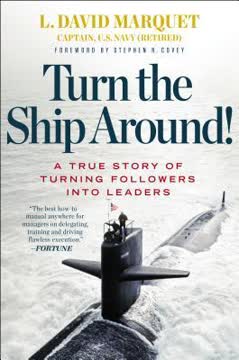Key Takeaways
1. Resilience is a learnable skill that enhances life quality and stress management
"Resilience is commonly thought of as 'bouncing back,' like a spring, to our precrisis shape or norm. A more apt metaphor for resilience might be 'bouncing forward,' rebounding and reorganizing adaptively to fit new challenges or changed conditions."
Resilience is not fixed. It's a dynamic capacity that can be developed and strengthened over time. By understanding and applying key principles, individuals can expand their "range of resilience" and better navigate life's challenges.
Components of resilience:
- Stress management techniques
- Self-care practices
- Strong support networks
- Positive psychology principles
- Mindfulness and self-reflection
By cultivating these aspects, individuals can not only cope with adversity but also thrive in the face of it. Resilience allows for personal growth, enhanced problem-solving abilities, and a greater sense of control over one's life circumstances.
2. Self-care is crucial for maintaining psychological well-being and professional effectiveness
"The self is limited. It has only so much energy. If it is not renewed, then depletion will take place."
Self-care is not selfish. It's a necessary practice for maintaining emotional balance, preventing burnout, and ensuring long-term effectiveness in both personal and professional realms.
Elements of a comprehensive self-care protocol:
- Regular physical exercise
- Adequate sleep and nutrition
- Leisure activities and hobbies
- Time for reflection and meditation
- Setting healthy boundaries
- Seeking support when needed
By prioritizing self-care, individuals can replenish their emotional reserves, maintain perspective, and approach challenges with greater resilience. This not only benefits the individual but also positively impacts their relationships and work performance.
3. A balanced circle of friends provides essential support and perspective
"One of the greatest gifts we can share with others is a sense of our own peace and resilience. But we can't share what we don't have."
Diverse friendships enrich life. A well-rounded social network provides various forms of support, challenge, and insight that are crucial for personal growth and resilience.
Key roles in a balanced circle of friends:
- The Prophet: Offers honest, sometimes challenging feedback
- The Cheerleader: Provides unconditional support and encouragement
- The Harasser: Helps maintain perspective through humor and teasing
- The Guide: Offers wisdom and helps navigate life's complexities
By cultivating relationships that fulfill these roles, individuals create a support system that bolsters their resilience, challenges their thinking, and provides comfort during difficult times.
4. Posttraumatic growth offers potential for personal development through adversity
"PTG occurs when a new perspective emerges and helps us realize something previously unencountered in the way we view life."
Trauma can lead to growth. While traumatic experiences are inherently painful, they also present opportunities for profound personal development and a deeper appreciation of life.
Aspects of posttraumatic growth:
- Enhanced personal strength
- Deeper relationships
- Greater appreciation for life
- New possibilities or perspectives
- Spiritual or existential growth
By approaching adversity with openness and self-reflection, individuals can harness the transformative potential of difficult experiences. This doesn't diminish the pain of trauma but offers a path toward meaning and personal evolution.
5. Regular self-reflection and debriefing foster self-awareness and emotional regulation
"We can count on losing perspective and deluding ourselves if time is not devoted to reflection on our thoughts, behavior, and feelings."
Self-awareness is a continuous process. Regular self-reflection and debriefing practices help individuals maintain clarity about their emotional states, motivations, and behaviors.
Benefits of self-reflection:
- Improved emotional regulation
- Enhanced decision-making
- Greater self-understanding
- Identification of personal growth areas
- Maintenance of perspective during challenges
By incorporating structured reflection into daily routines, individuals can catch negative patterns early, reinforce positive behaviors, and maintain a clearer sense of self amidst life's complexities.
6. Mindfulness and solitude are powerful tools for maintaining perspective and inner peace
"Mindfulness is an attempt to regain contact with the flow of experience."
Present-moment awareness is transformative. Mindfulness and solitude practices offer a respite from the constant stimulation of modern life, allowing for deeper self-connection and clarity.
Benefits of mindfulness and solitude:
- Reduced stress and anxiety
- Improved focus and concentration
- Enhanced emotional regulation
- Greater self-awareness
- Increased creativity and problem-solving abilities
By cultivating a regular mindfulness practice and intentionally seeking periods of solitude, individuals can develop a more grounded, centered approach to life's challenges and opportunities.
7. Positive psychology principles can boost happiness and strengthen personal resources
"I believe that the highest success in living and the deepest emotional satisfaction comes from building and using your signature strengths."
Focus on strengths, not just weaknesses. Positive psychology emphasizes cultivating personal virtues, positive emotions, and meaningful experiences to enhance overall well-being.
Key concepts in positive psychology:
- Identifying and leveraging signature strengths
- Cultivating positive emotions
- Practicing gratitude
- Developing optimism
- Pursuing meaningful goals
By incorporating these principles into daily life, individuals can build resilience, increase life satisfaction, and develop a more positive outlook on life's challenges and opportunities.
8. Embracing change and unlearning outdated patterns are key to personal growth
"To turn your back on change doesn't recapture the past. Instead, it loses the future."
Change is inevitable and necessary. Embracing change and being willing to unlearn outdated patterns of thinking and behavior are crucial for ongoing personal growth and adaptation.
Strategies for embracing change:
- Cultivate a growth mindset
- Practice flexibility in thinking
- Seek out new experiences and perspectives
- Regularly reassess personal beliefs and habits
- View challenges as opportunities for learning
By approaching change with openness and curiosity, individuals can continuously evolve, adapt to new circumstances, and unlock new potentials within themselves.
9. Developing emotional intelligence helps navigate interpersonal challenges
"Listening to the people around us and opening ourselves to what we hear coming from within us may cause us some shame and emotional pain at first, if we are really honest."
Emotional intelligence is crucial. Developing the ability to recognize, understand, and manage one's own emotions, as well as empathize with others, is key to navigating interpersonal relationships and professional environments.
Components of emotional intelligence:
- Self-awareness
- Self-regulation
- Motivation
- Empathy
- Social skills
By honing these skills, individuals can communicate more effectively, resolve conflicts constructively, and build stronger, more meaningful relationships in both personal and professional spheres.
10. Cultivating gratitude and savoring positive experiences enhance resilience and well-being
"Deep gratefulness is one of the major preventatives and antidotes to a loss of perspective."
Appreciation amplifies joy. Actively practicing gratitude and intentionally savoring positive experiences can significantly boost overall well-being and resilience.
Benefits of gratitude and savoring:
- Increased positive emotions
- Improved relationships
- Enhanced stress management
- Greater life satisfaction
- Strengthened resilience in face of adversity
By regularly acknowledging life's gifts and fully engaging with positive moments, individuals can build a reservoir of positive emotions to draw upon during challenging times, maintaining a more balanced and optimistic outlook on life.
Last updated:
Review Summary
Readers generally found Bounce helpful for building resilience and self-care, particularly for those in helping professions. Many appreciated its practical advice, motivational tone, and resources for personal wellness. Some found it insightful for dealing with trauma and stress. However, a few readers felt it lacked depth or was too scattered. The book's focus on mindfulness and resilience was praised, though some found it basic or dated. Overall, it received positive reviews for its accessible approach to personal growth and stress management.
Similar Books






Download PDF
Download EPUB
.epub digital book format is ideal for reading ebooks on phones, tablets, and e-readers.




